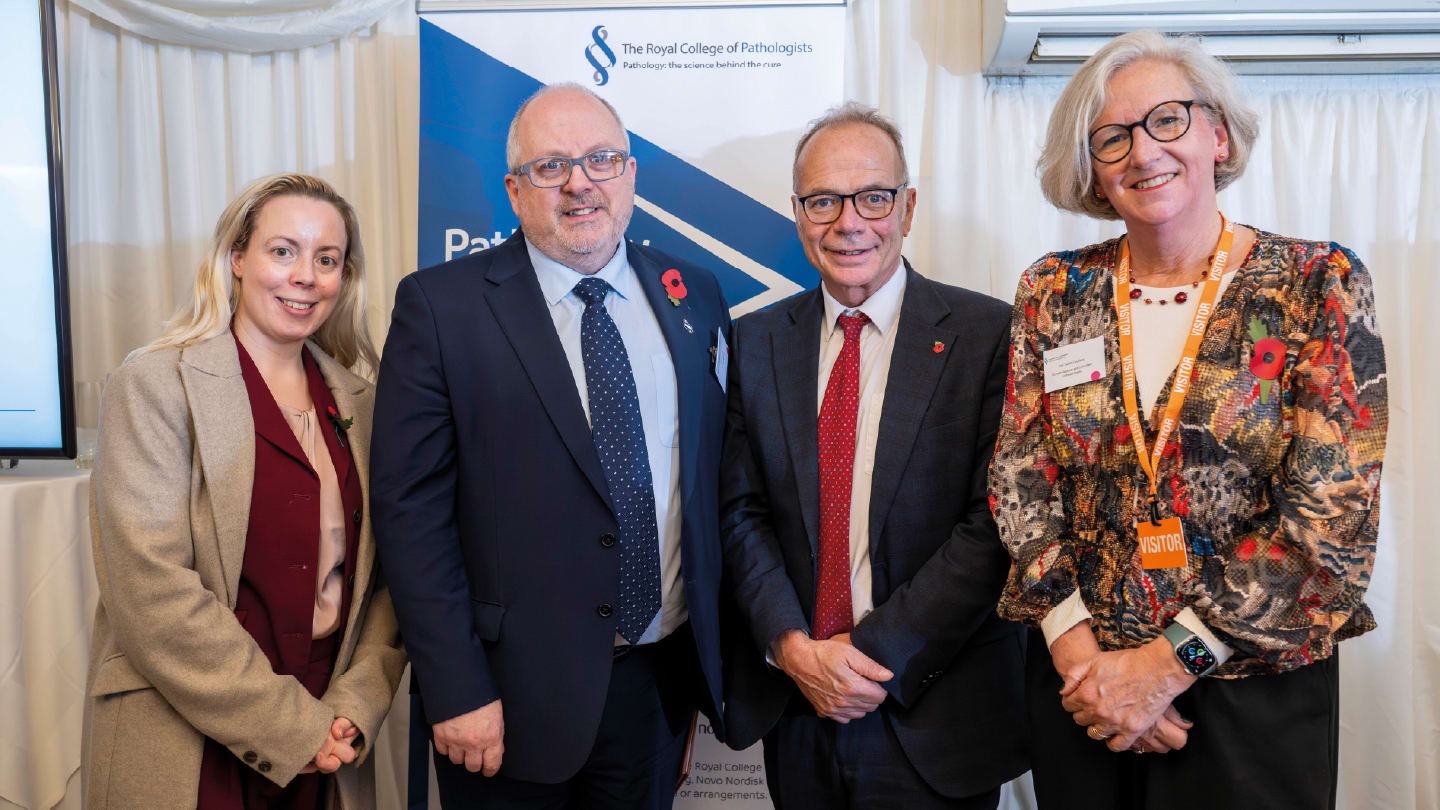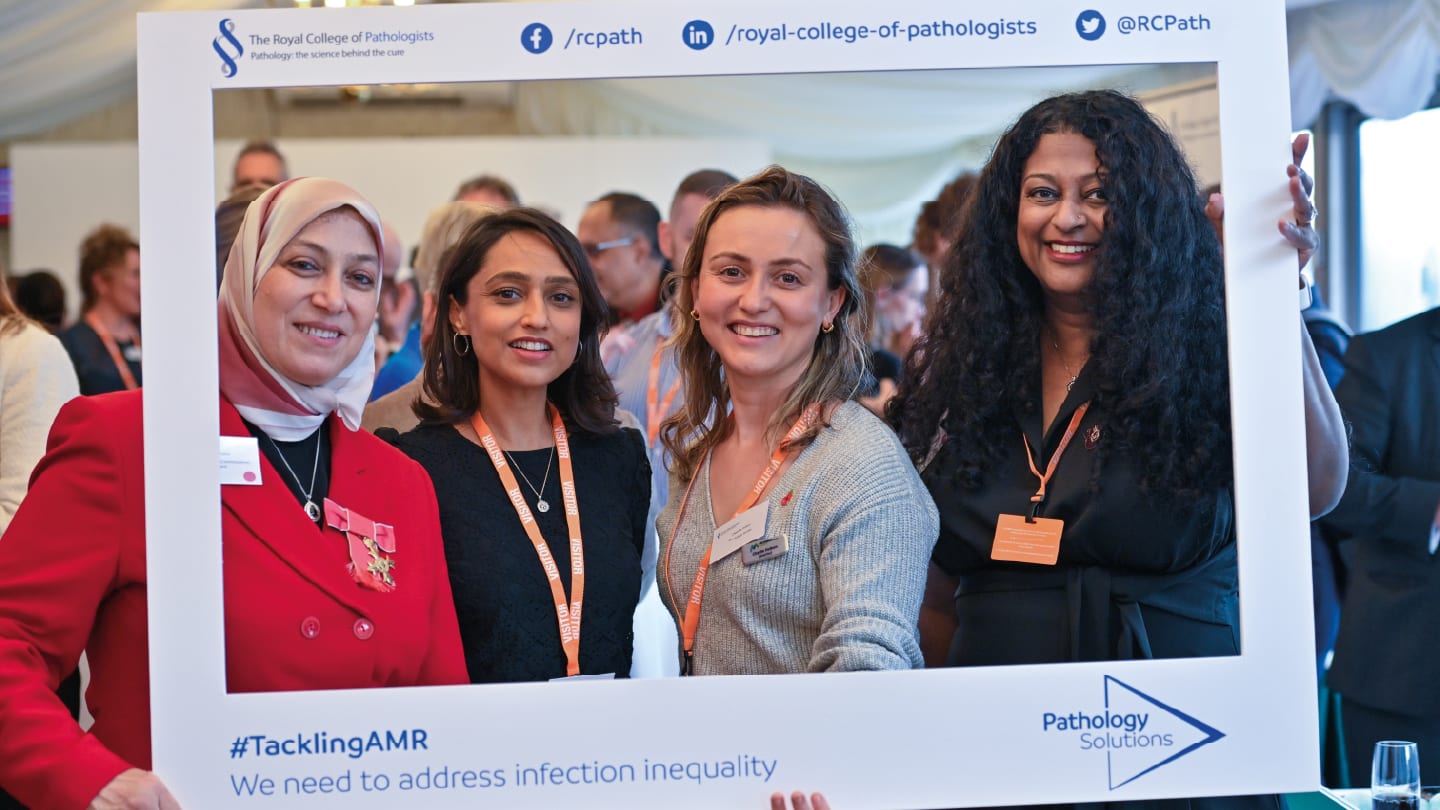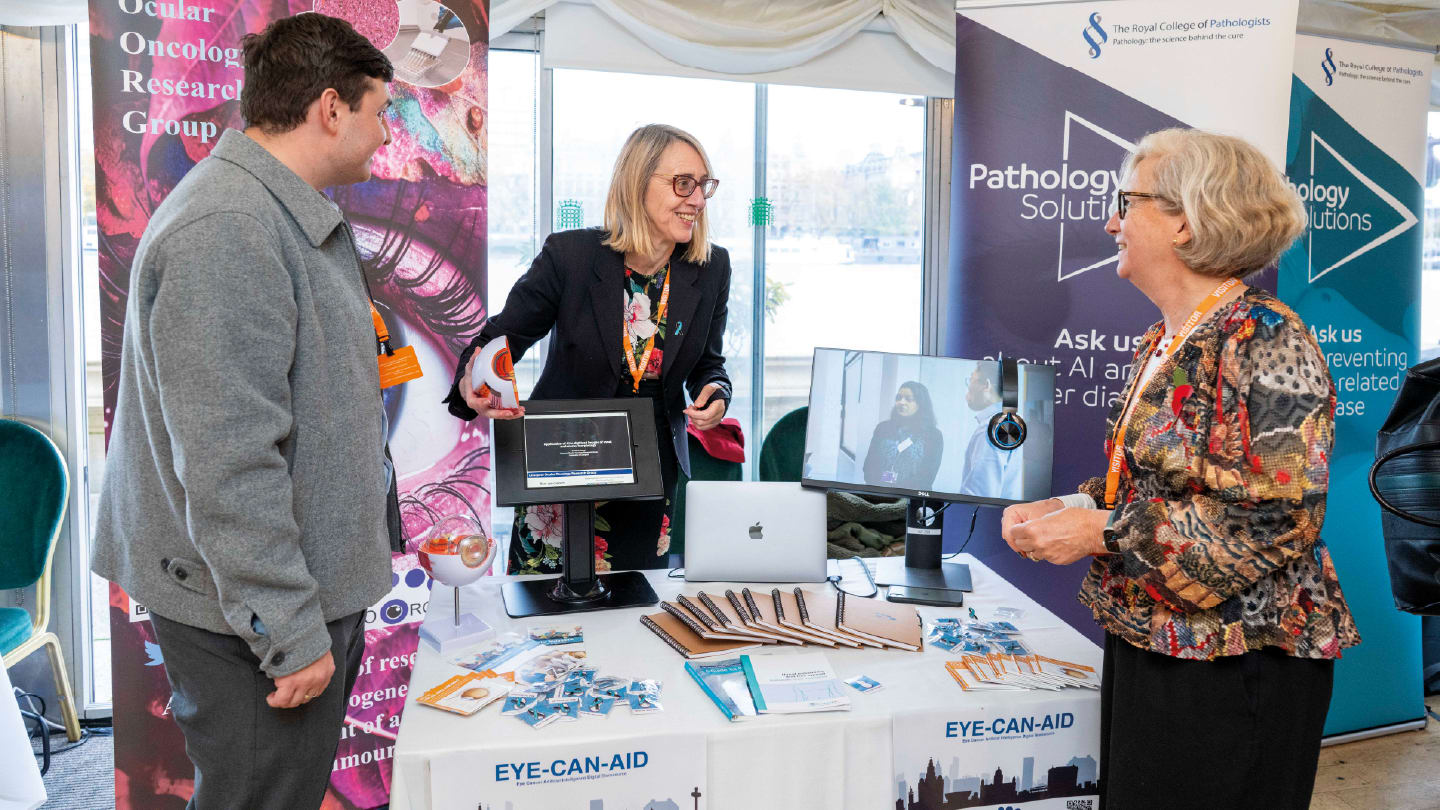
The value of the UK pathology workforce was celebrated this November in a forward-looking event in London.
Pathology Solutions, organized by the Royal College of Pathologists (RCPath), invited senior leaders from government, industry, research, and health charities to learn about the crucial work of pathology services at the forefront of the health system.
RCPath President Bernie Croal said, “Pathology Solutions, held at the House of Commons in Westminster, was an excellent opportunity for the College to celebrate pathology and demonstrate its vital role in healthcare. We were delighted to be joined by Dr Simon Opher, MP, who hosted the event.”

The event, held during National Pathology Week, revolved around the UK National Health Service (NHS) 10-year plan – for which RCPath was a key consultant. Presenters demonstrated how pathology services will be pivotal in delivering the “three shifts” of the NHS plan: towards disease prevention, community-based care, and digital systems.
Delegates had the opportunity to speak with experts working in diagnosis, prevention, and treatment of disease. From obesity-related disease prevention programs, to genetic strategies to eradicate sickle cell disease, and training AI to detect rare eye cancer from optometry images, the event showcased pathology at the forefront of innovative medicine.

Chloe Merrion, Hematology registrar at Whittington Health NHS Trust highlighted the impact of pathology in improving sickle cell disease outcomes at her interactive stand. Delegates heard how genotyping is used to match donor and patient blood types, and how outreach initiatives are encouraging more diversity in donors. “Out in the community, services like the Red Cell Community Service in North London are helping patients manage their condition more effectively,” she said.
On the theme of disease prevention, Agnieska Jakubowska, Registrar in Chemical Pathology and Metabolic Medicine, spoke to the importance of reducing obesity-related disease, saying, “Chemical pathologists are actively involved in providing obesity management services and clinics. They have also been fundamental in developing and implementing current pharmacological treatments including GLP-1 agonists and dual GLP-1/GIP agonists.”

Croal warned that the sustainability of such initiatives was reliant on funding. In his address, he highlighted the need for investment and reform in the pathology workforce, IT infrastructure, and pathology facilities. “Investment in pathology services is now essential to enable pathology to drive recovery and improvement across the NHS,” he said.
The event was a great success, helping to raise the profile of pathology services in the UK, and position them as pivotal to achieving the NHS long-term goals.




